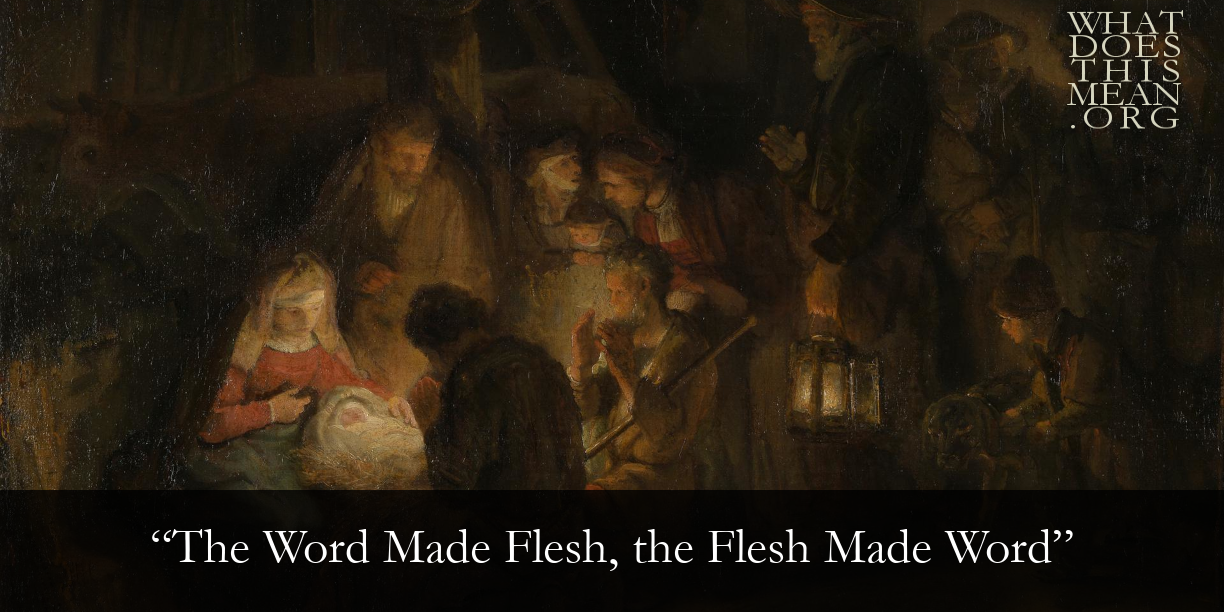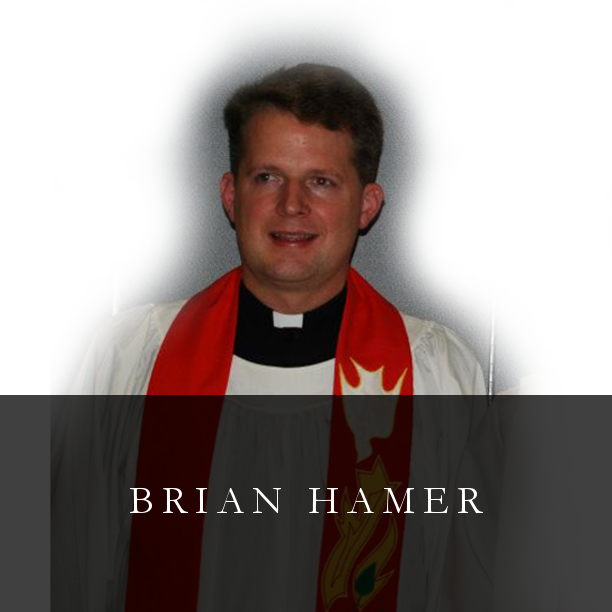| Verbum caro factum est et habitavit in nobis et vidimus gloriam ejus gloriam quasi unigeniti a Patre plenum gratiae et veritatis. | [The] Word became flesh and dwelt among us and we beheld His glory glory of the only-begotten of [the] Father full of grace and truth. |
The composer, a native of Bohemia, fled to Saxony with his father in 1626 on account of their Lutheran faith. Hammerschmidt then must have received a good enough musical training to land organist posts at prominent churches in Freiberg, and later in Zittau. He wrote mostly sacred music for the Lutheran liturgy, devotion, and special occasions, adopting the most common genres of his age: motets, sacred concertos, dialogues, and strophic arias. (Notes 74:1, p. 125).
| das Wort ward Fleisch und wohnte unter uns, und wir sahen seine Herrlichkeit, eine Herrlichkeit als des eingeborenen Sohnes vom Vater, voller Gnade und Wahrheit. Halleluja! | The Word became flesh and dwelt among us, and we saw His glory, the glory as of the only-begotten Son of the Father, full of Grace and Truth. Hallelujah! |
The Word was made flesh, and dwelt among us. We beheld the glory of the Father, full of grace and truth. In the beginning was the Word. The Word was with God. In Him was life; and the life was the light of men. He came to his own and his own received him not. The Word was made flesh, and dwelt among us. We beheld the glory of the Father, full of grace and truth. — St. John 1:14, 1, 11
In one of his “Preparing a Masterpiece” workshops at Carnegie Hall, the late choral conductor, Robert Shaw (1916–1999), once drew an intriguing parallel between Christianity and Christian music, saying, “Christianity is the Word made flesh. Sacred music is the flesh made word.” Parsing this profound claim into a poetic structure, the following ABBA parallelism emerges:
B made flesh.
B’ Sacred music is the flesh
A’ made word.
Perhaps the following sixth-century Byzantine hymn, “O Only-Begotten Son,” generally attributed to Emperor Justinian I (AD 482–565), puts it best:
| O Only-Begotten Son and Word of God, Who, although immortal, for our salvation did yet consent to be incarnate from the holy mother of God, the ever-virgin Mary, Who without change was made man and was crucified, Christ, our God, Who by death did trample death, Who, being one of the Holy Trinity, is glorified with the Father and the Holy Spirit, Save us! (as quoted in the Introduction to Concordia Commentary: John 1:1–7:1) |



 RSS Feed
RSS Feed
